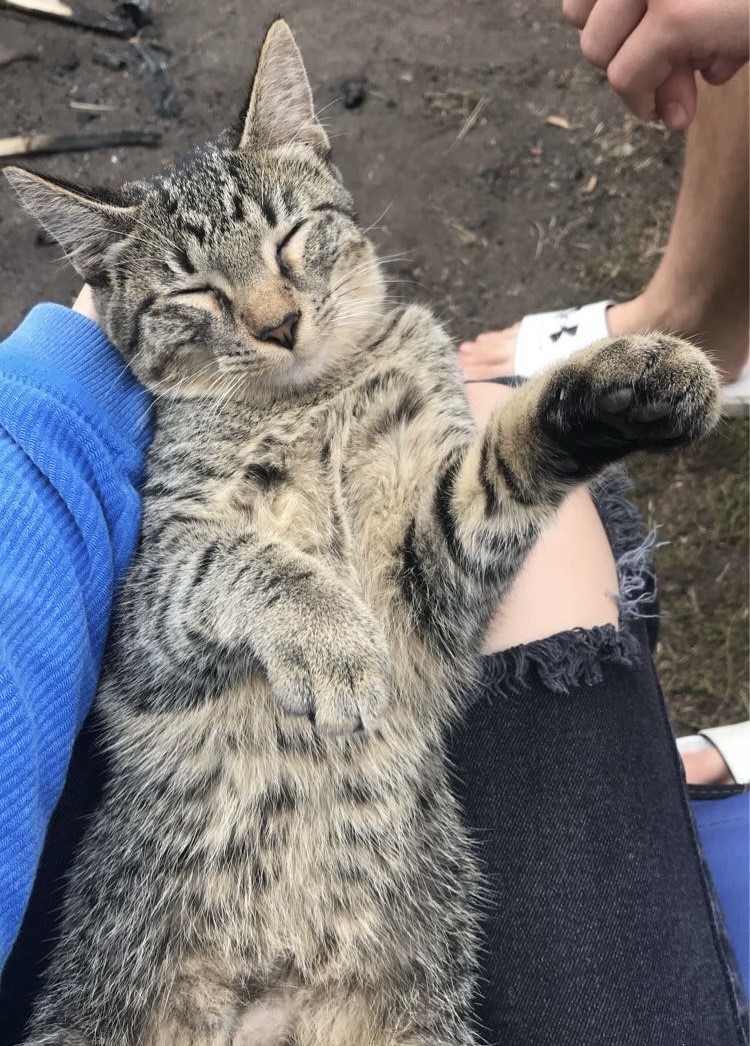Students have frequently seen cats roaming around campus every semester.
Whether they are emotional support animals (ESA), feral, or domesticated, the cats certainly grab the attention of students and passersby.
Each year, as the colder season sets in though, students sometimes take it upon themselves to pick up the cats and turn them into animal shelters for fear for the cats need help, even the cats that have owners.
Isabella Vree, a community service officer for Brookings Animal Control, receives many calls for this very reason.
“People are more likely to call in a cat that they see when they’re cold because they think, ‘Oh, no, I’m cold, so that cat must be cold. I have to call it in,’ Vree said. “Rather than if they see a cat in the summer, more people will typically say, ‘Oh cute cat,’ and move on.”
Vree says many of these cats are strays that were once owned by students but are released out to campus or the city when they can no longer keep the cats as pets.
“People either have to move home or they can’t decide who gets to keep the pet,” Vree said. “Or their parents say they can’t have it, or wherever they move for a new job when they graduate, or a new house they’re renting doesn’t allow pets and unfortunately a lot of times, they just release it around campus or in the city, which causes a very, very large stray-cat problem.”
A senior student at SDSU, who asked to remain anonymous, due to online criticism, is the owner of a well-known and domesticated cat, named Rodney, that used to roam around campus. The owner said Rodney was a stray cat when she first found her last summer.
The owner said she had a “chaotic experience” of letting her cat roam outdoors freely.
Rodney was able to be tracked by her owner using a microchip, and because students around campus took pictures of her and posted her spottings on social media platforms such as Snapchat and YikYak.
“She was a big adventurer,” her owner said. “But it was just chaotic not knowing where she was sometimes or like keeping up to date with her on Snapchat stories, knowing that she was by Hyde Hall an hour ago, but now she’s by Pierson Hall.”
This became a problem when people would pick up Rodney and take her into their dorm rooms for the night. Eventually, Rodney’s owner ended up bringing her to her parent’s house in her hometown where the cat currently lives.
Danicah Capitonoff, a sophomore resident of Binnewies Hall, said she saw more cats roaming last year, but has heard a few cat stories about this year, including Rodney.
“I’ve definitely heard of Rodney, she’s famous,” Capitonoff said. “But I don’t think I saw Rodney because she looks kind of like a rabbit, but I’ve definitely seen her on the Snapchat stories.”
Vree said that allowing cats roam about campus poses dangers to cats because they are at risk of being hit by cars, exposed to diseases and suffering attacks from skunks, opossums, and raccoons.
Also, they can potentially harm wildlife.
“Outdoor domesticated cats can be very detrimental to local wildlife,” Vree said. “Oftentimes, they like to play with birds or mice or moles or voles or things like that and just decrease local populations of things like pollinators, without necessarily having to eat them. So, not only is it a danger to themselves running out in front of cars and such, but also can hurt the environment around them.”
If a student wants to adopt a cat, the city requires pets to be licensed, which can be bought from the Brookings Police Department for $5. If pets are picked up by animal control without a license the owners pays a fee.
“In general, unless it is a barn cat or a mouser cat, it is really favorable to keep the cats indoors,” Vree said. “Especially on campus, we do get a lot of calls that people hit a cat or they find a cat in the road that we have to come take care of. So, it is much better and safer for a pet cat to stay inside.”
TRENDING
Cats on Campus
Jordan Roemeling, Assistant Entertainment Editor
January 30, 2024
Rodney the cat has caught the attention of both students and Brookings Animal Control while he roamed campus for several semesters.
Leave a Comment
More to Discover





























